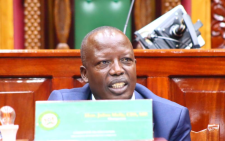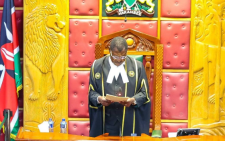Clear audit queries by June, counties and State agencies advised

The national government has directed all the 47 county governments and state departments to finalize all the pending audit queries by 30th June 2024.
Speaking during the opening of the Public Sector Accounting Standards Board (PSASB) sensitisation workshop in Naivasha that brought together county audit committee members, PSASB board chair Pius Nduati noted that this was in line with the government’s zero-fault policy that seeks to eliminate financial audit queries in future.
Counties have been flagged as the leading entities facing a backlog of audit queries 11 years since the inception of devolution, but the cases have been gradually reducing marking a great improvement.
Nduati noted that the national government is working closely with state departments and county governments to address the issue to ensure the zero-fault audit queries policy is uniformly achieved to boost the fight against corruption.
“The government has issued an order that all pending audit queries should be resolved by June 2024 and thereafter public sector bodies should ensure there are no more queries,” he said.
He also noted that the board is working towards creating a harmonized working environment between county government management, audit committees and internal audit units to address existing challenges.
“One of the main challenges is the recognition of audit committees and internal audit function in the county governments. We are engaging to create a rapport between the players to ensure best practices to support good governance and compliance in the devolved units,” added Nduati.
PSASB boss Fredrick Riaga said the country has adopted accrual accounting system from the traditional cash mode in a programme that is being rolled out in the next three years.
Andrew Musungu from the Council of Governors (COG) noted that counties have marked a huge milestone in addressing the auditing processes adding that the devolved units are also working in partnership with EACC to ensure best practices and good governance programmes are upheld.










